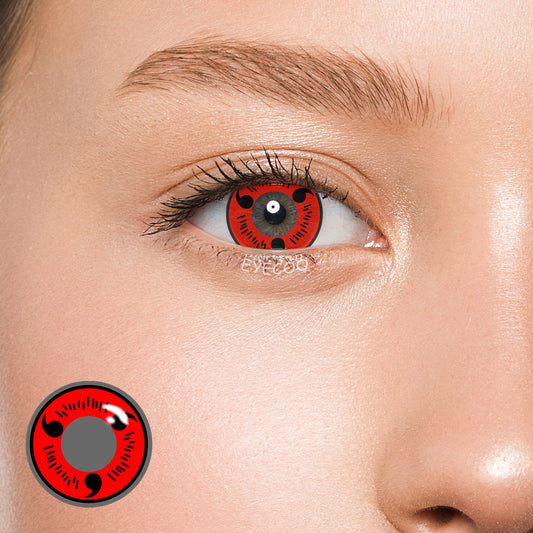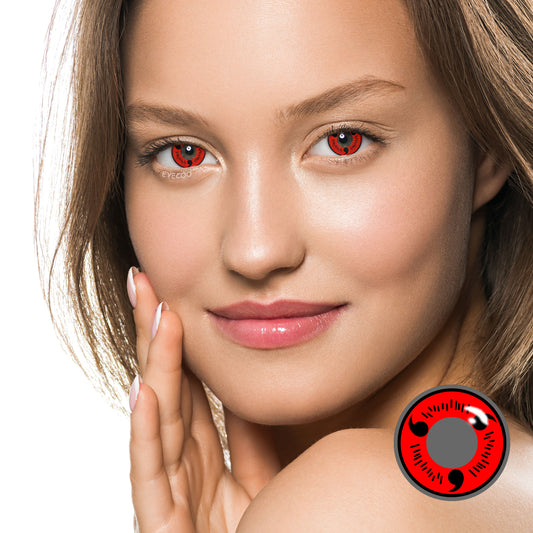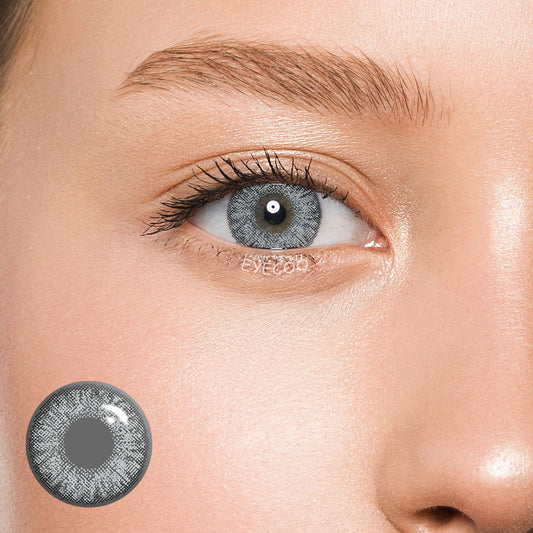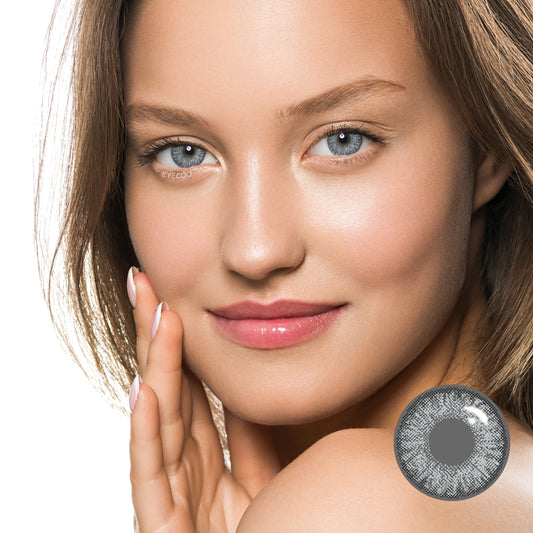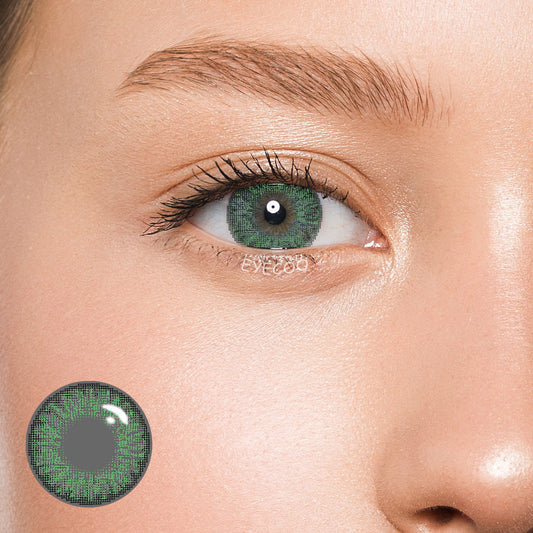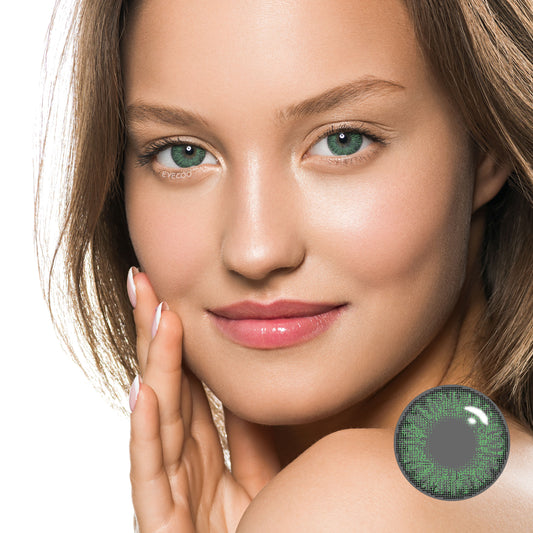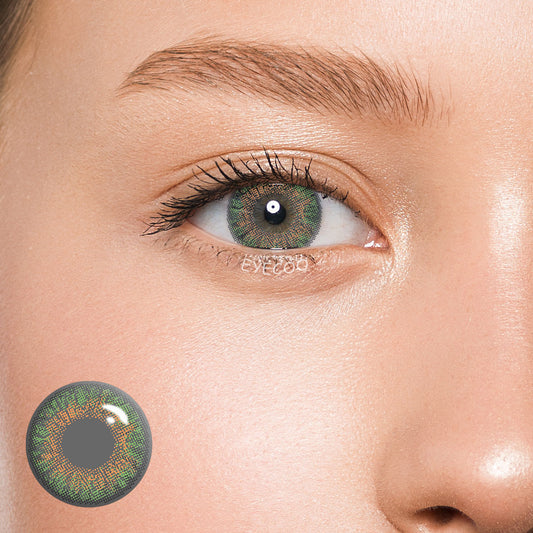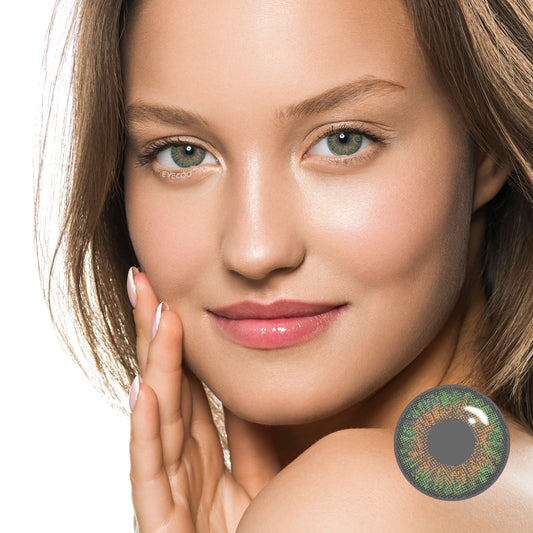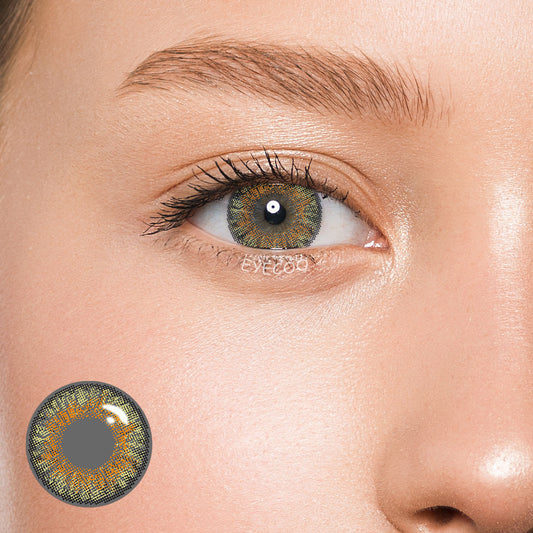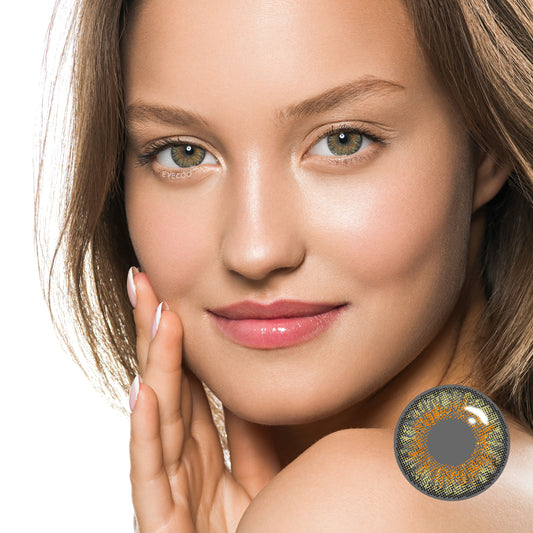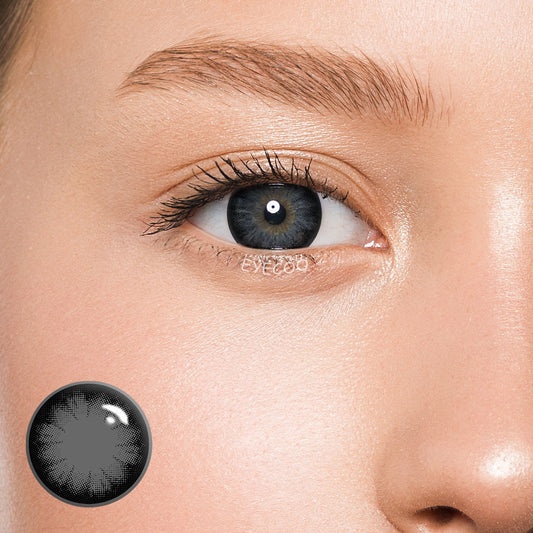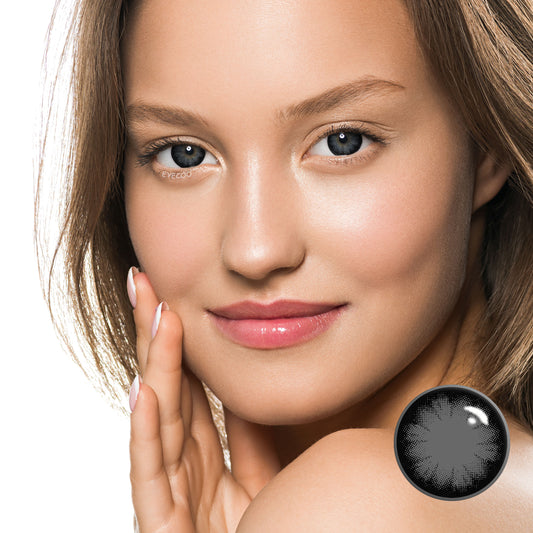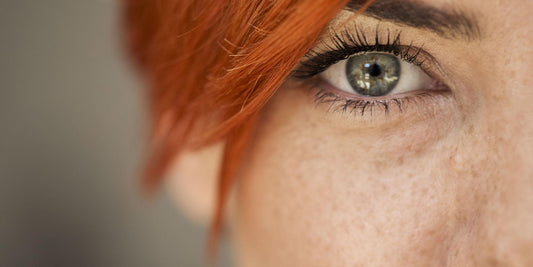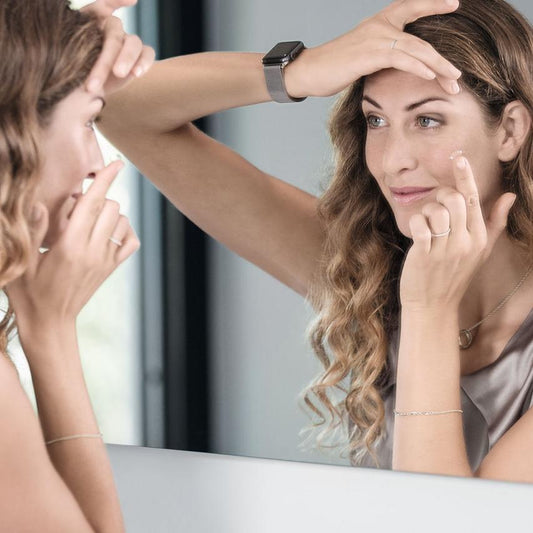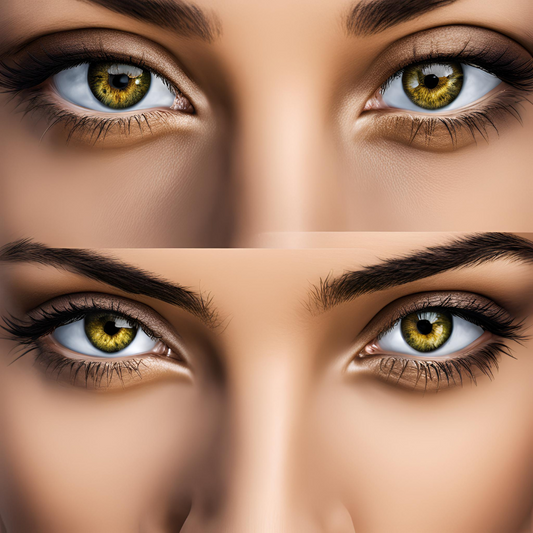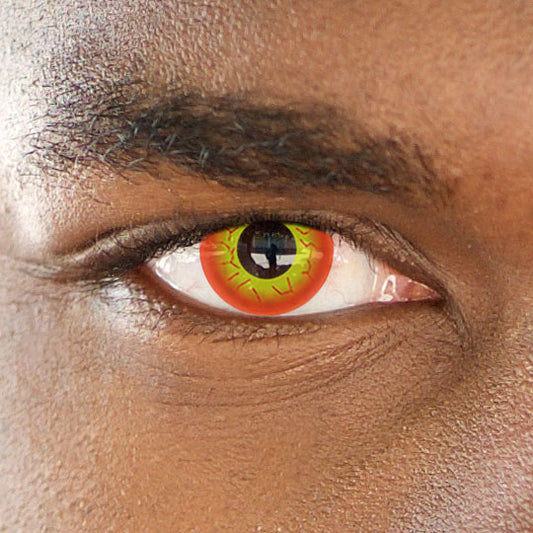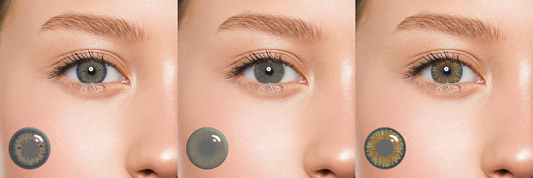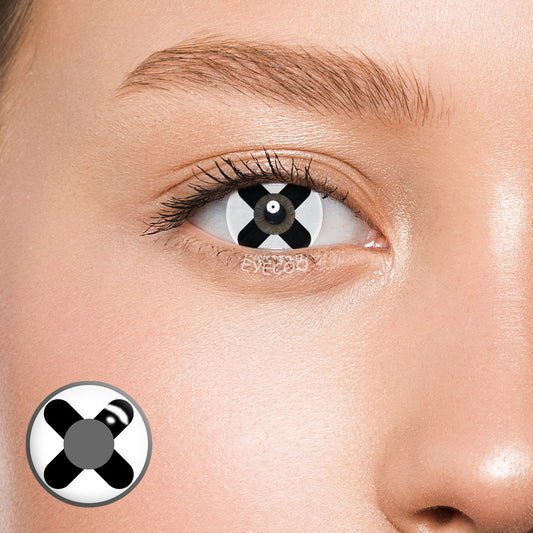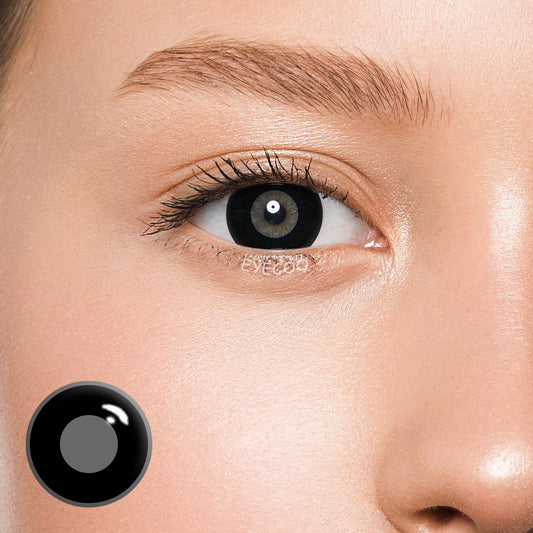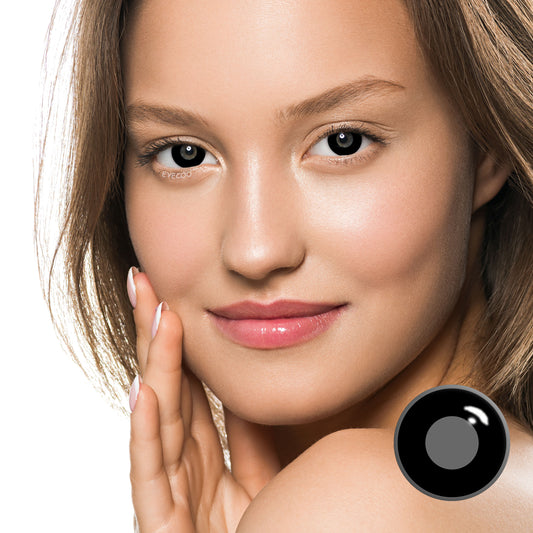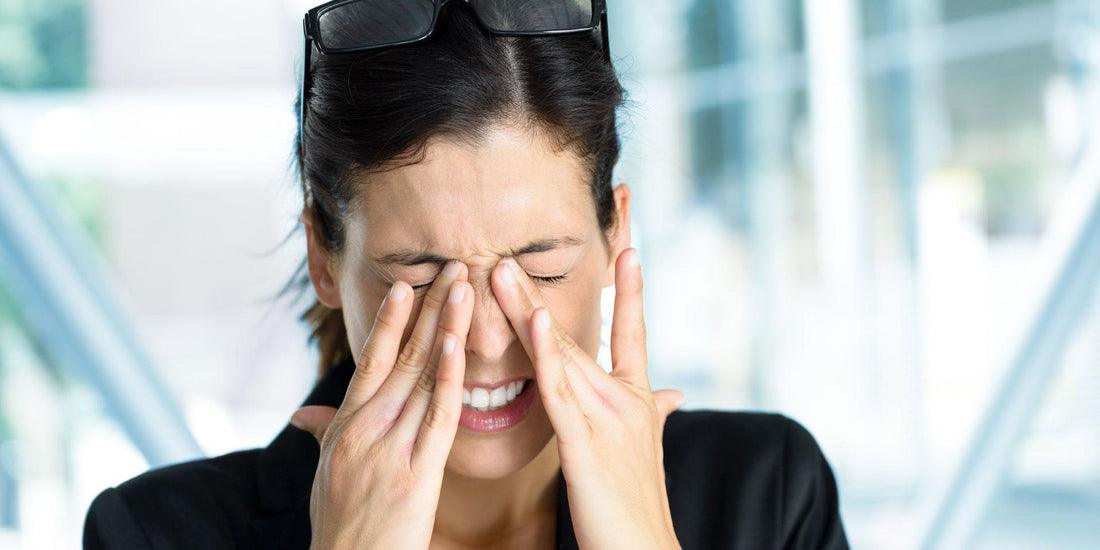
Swollen Eyes, Dark Circles, Redness, and Burning Sensation: Causes and Prevention
Are you experiencing swollen eyes, dark circles, redness, or a burning sensation in your eyes? These uncomfortable symptoms can be caused by various factors. Let’s explore what might be causing these issues and how to prevent them.

Swollen Eyes Symptoms:
- Swelling and puffiness around the eyes and eyelids, sometimes with redness and sensitivity to pressure.
- Frequent itching, tearing, and a burning sensation.
- Usually affects both eyes, rarely just one.
Causes:
- Common causes of swollen eyes include lack of sleep, poor air quality (e.g., too warm or stuffy), or crying, which put stress on our eyes and lead to swelling. The skin around the eyes is much thinner than on other parts of the face, making it more susceptible to signs of stress and fatigue.
-
Swollen eyes can also be hereditary or a result of aging, but there are many other causes:
- Eating a salty or protein-rich dinner can cause swelling the next morning. Lying flat while sleeping exacerbates the issue by affecting lymphatic fluid flow, leading to fluid accumulation and swelling.
- Allergies (usually related to pollen, dust, or pet hair), food intolerances, or medication can cause swelling.
- Acute neurodermatitis can cause swollen, painful, and/or dry eyes.
- Eye infections such as conjunctivitis or styes can lead to swelling.
- Swelling can also indicate other health conditions like kidney or heart disease, hypothyroidism, or high blood pressure. It can also occur during colds, especially if the sinuses are affected.
- Dehydration can lead to swollen eyes.
- Dry eyes, caused by wearing contact lenses for extended periods, exposure to warm air, or prolonged screen time, can also cause swelling.
- Some medications can lead to dry eyes and subsequent swelling.
- External impacts like knocks or blows can cause swelling.
- Many women notice swelling around the eyelids during menstruation due to estrogen production.
How to Reduce Swollen Eyes:
- Treatment depends on the cause. If symptoms don’t resolve on their own, it’s recommended to consult an eye doctor to determine the cause. This also applies to recurring symptoms or if symptoms suddenly appear and don’t quickly subside.
There are many simple and effective home remedies that can quickly relieve swollen eyes. Cold compresses are often effective for most types of swelling. You can try placing a cold tea bag (green tea can help reduce swelling) on the swollen eyelid, or why not try a refreshing cucumber mask?
Note: Some people may have an allergic reaction to flavored black tea bags. If this happens, remove the tea bag immediately. Here's a practical alternative: place two teaspoons in the fridge for five minutes. Next, place the spoons on the swollen eyes, with the concave side facing the eye. The coolness is not only pleasant but also helps reduce swelling. Important: Make sure the spoons aren’t left in the fridge too long to avoid being too cold. The spoons shouldn’t feel uncomfortable on the eyes. If they do, remove them immediately and wait until the metal warms slightly.
If you frequently experience swollen eyes, consider using cooling eye masks (available at pharmacies, beauty, and health retailers). Gel-filled eye masks provide a pleasant cooling sensation, soothing and refreshing the sensitive skin around the eyes. If the swelling is caused by dry eyes, special eye drops can help stabilize the tear film and keep the eyes moist, reducing irritation. If allergies are the cause, antihistamines (available at pharmacies) can provide quick relief for acute symptoms. Special medications for treating allergies work by alleviating or preventing allergic reactions. Desensitization, also known as specific immunotherapy, can help combat allergies. In this treatment, patients are exposed to allergenic substances repeatedly over a period of six months to three years. This gradually helps the body "accept" the allergen, reducing or eliminating the allergic reaction over time. If the swelling is caused by high blood pressure, heart, or kidney disease, your doctor can help find the best treatment to address the underlying cause.
If neurodermatitis causes swelling and the symptoms are severe, doctors usually prescribe cortisone. Not all creams and ointments are suitable for all skin areas, so be sure to consult a doctor before treating the sensitive area around the eyes.
Eye infections can also lead to swelling. Depending on the type of swelling, a range of treatments is available.
Prevention:
-
Many things can cause swollen eyes, so various preventative measures can be taken. Avoid common triggers such as alcohol consumption or eating foods high in salt or protein at night. More importantly, follow these tips to prevent swollen eyes:
- Get as much sleep as possible and try to maintain a regular sleep pattern. Seven hours of sleep is optimal for most people.
- Your bedroom shouldn’t be too warm, as this can irritate the eyes. Ideally, keep the room temperature between 16-20 degrees Celsius.
- Poor air quality can irritate the eyes, so ensure regular ventilation in indoor spaces to prevent dry, swollen, and irritated eyes.
- Dehydration can also lead to dry and swollen eyes. Drinking plenty of fluids—ideally up to two liters of water a day—can help prevent swollen eyes. Consuming less sugar also helps prevent swollen eyes.
- Allergies can cause swollen eyes and dark circles.
- Excessive sugar or alcohol consumption, or the use of scented or preservative-containing cosmetics, can irritate the skin. People with neurodermatitis may also experience swollen eyes. Therefore, those with neurodermatitis should maintain a healthy lifestyle and avoid harmful skincare products.
- If eye infections cause swelling, various preventative measures can be taken depending on the type.

Dark Circles Under the Eyes Symptoms:
- The skin under the eyes appears darker. Depending on the severity, the eyes may look tired; severe dark circles can make a person appear unwell. The affected area may appear brown, blue, gray, or bluish-purple. The causes of dark circles are usually harmless and shouldn’t be confused with a black eye, which is caused by trauma.
Causes:
-
In most cases, dark circles are merely a temporary cosmetic issue. There are two main reasons:
-
Excess Pigment Deposition in the Skin (Hyperpigmentation):
Skin color is regulated by factors such as melanin. This substance in cells largely determines our skin tone. The more melanin there is, the darker the skin tone. If a large amount of melanin is deposited around the eyes, it results in blue or blue-gray dark circles. Medically, this is known as hyperpigmentation or melasma. Dark circles caused by hyperpigmentation can be hereditary. Other causes include:
-
Excess Pigment Deposition in the Skin (Hyperpigmentation):
- Infections, illnesses, and rashes (neurodermatitis, contact lens allergies)
- Frequent and intense UV exposure
- Certain medications
-
Transparent Blood Vessels:
The second most common cause of dark circles is transparent blood vessels. The skin and subcutaneous fat tissue under the eyes are particularly thin—in some people, so thin that the blood vessels are visible through the skin. This makes the affected area appear darker, which is why dark circles look brown. The less oxygenated the blood in these vessels is, the more noticeable it is through the skin. This is because deoxygenated blood is darker than oxygenated blood. Other factors contributing to dark circles related to transparent blood vessels include:
- Kidney and thyroid diseases
- Pollutants (e.g., air and water pollution, exhaust fumes)
- Dehydration
- Poor diet, iron deficiency
- Medication, alcohol, and nicotine consumption
- Stress
- Lack of sleep
How to Reduce Dark Circles:
- Simple home remedies can help reduce the acute appearance of dark circles. One is a towel soaked in cold water. If you place it on the dark circles for five to ten minutes, the cold will cause blood vessels to constrict, making the dark circles appear lighter. As with treating swollen eyes, gel-filled eye patches or masks (available at pharmacies, beauty, and health retailers) can have a similar effect, as can green or black tea bags. To do this, simply steep two green or black tea bags in hot water, then cool them down. Gently squeeze out the tea bags and place them on the affected area. The caffeine in the tea will cause the blood vessels under the skin to constrict, making dark circles appear lighter. Note: Some people may have an allergic reaction to flavored black tea bags. If this happens, remove the tea bags immediately. Gently massaging the affected area can help stimulate blood circulation, which can reduce the appearance of dark circles.
You can also quickly and easily hide dark circles—just use a concealer! Ideally, the concealer shouldn’t dry out the skin but should have a moisturizing effect. If you have sensitive or allergic skin, it’s recommended to use a fragrance-free concealer. Tip: Choose a shade lighter than your skin or makeup tone.
Prevention:
- Depending on the cause, there are many ways to prevent dark circles. If dark circles are caused by poor diet, a healthy diet can be an effective prevention strategy. If the cause is lack of sleep, stress, or the consumption of medication, alcohol, or nicotine, a more balanced lifestyle will be effective. Dehydration is another common cause of dark circles. Therefore, drinking plenty of water is an effective prevention method.

Red or Sore Eyes Symptoms:
- One or both eyes may be very sore or mildly irritated. People often complain of itching, burning sensations, and tearing.
Causes:
-
Redness is caused by dilation of the blood vessels in the conjunctiva or the sclera beneath it, resulting in increased blood flow. These blood vessels are clearly visible through the conjunctiva, creating the appearance of redness. If the eye is sore, the following causes are common:
- Conjunctivitis
- Dry eyes
- Minor eye injuries
- Contact lenses or foreign bodies (eyelashes or dust particles) irritating the eye
- Allergic reactions
- Eye strain
How to Treat Red or Sore Eyes:
- The treatment for red or sore eyes depends on the cause. Generally, eye drops can help alleviate dryness or mild irritation. If allergies are the cause, antihistamine eye drops can relieve symptoms. For conjunctivitis, antibiotic or anti-inflammatory eye drops may be necessary, depending on the underlying cause. If eye strain is the issue, resting the eyes or using the 20-20-20 rule (taking a break every 20 minutes to look at something 20 feet away for 20 seconds) can be beneficial.
Prevention:
- To prevent red or sore eyes, it’s important to maintain good eye hygiene and avoid touching or rubbing your eyes with dirty hands. Ensuring that contact lenses are cleaned and used correctly is also crucial. If you’re prone to eye strain, taking regular breaks from screens and using artificial tears to keep your eyes moist can help prevent redness and soreness.

Burning Eyes Symptoms:
- A burning sensation in the eyes is often accompanied by itching, redness, tearing, and a feeling of dryness. The eyes may feel irritated, and blinking might not bring relief.
Causes:
-
Burning eyes can be caused by a variety of factors, including:
- Dry eyes due to prolonged screen time, exposure to dry or dusty environments, or lack of sleep.
- Allergies to pollen, dust, pet dander, or certain cosmetic products.
- Eye infections like conjunctivitis or blepharitis.
- Foreign bodies in the eye, such as dust or sand.
- Chemical irritants, such as chlorine in swimming pools or exposure to smoke or fumes.
- Wearing contact lenses for too long or not cleaning them properly.
How to Relieve Burning Eyes:
- The treatment for burning eyes depends on the cause. For dry eyes, using artificial tears can provide relief. If allergies are the culprit, antihistamine eye drops can help. In the case of an infection, antibiotic or anti-inflammatory eye drops may be necessary. If the burning sensation is caused by a foreign body, flushing the eye with clean water can help remove the irritant.
Prevention:
- To prevent burning eyes, avoid prolonged exposure to dry or dusty environments and take regular breaks from screens. Wearing sunglasses can protect your eyes from environmental irritants. If you wear contact lenses, ensure they are cleaned properly and not worn for extended periods. Using hypoallergenic cosmetics can also help prevent allergic reactions that cause burning eyes.

